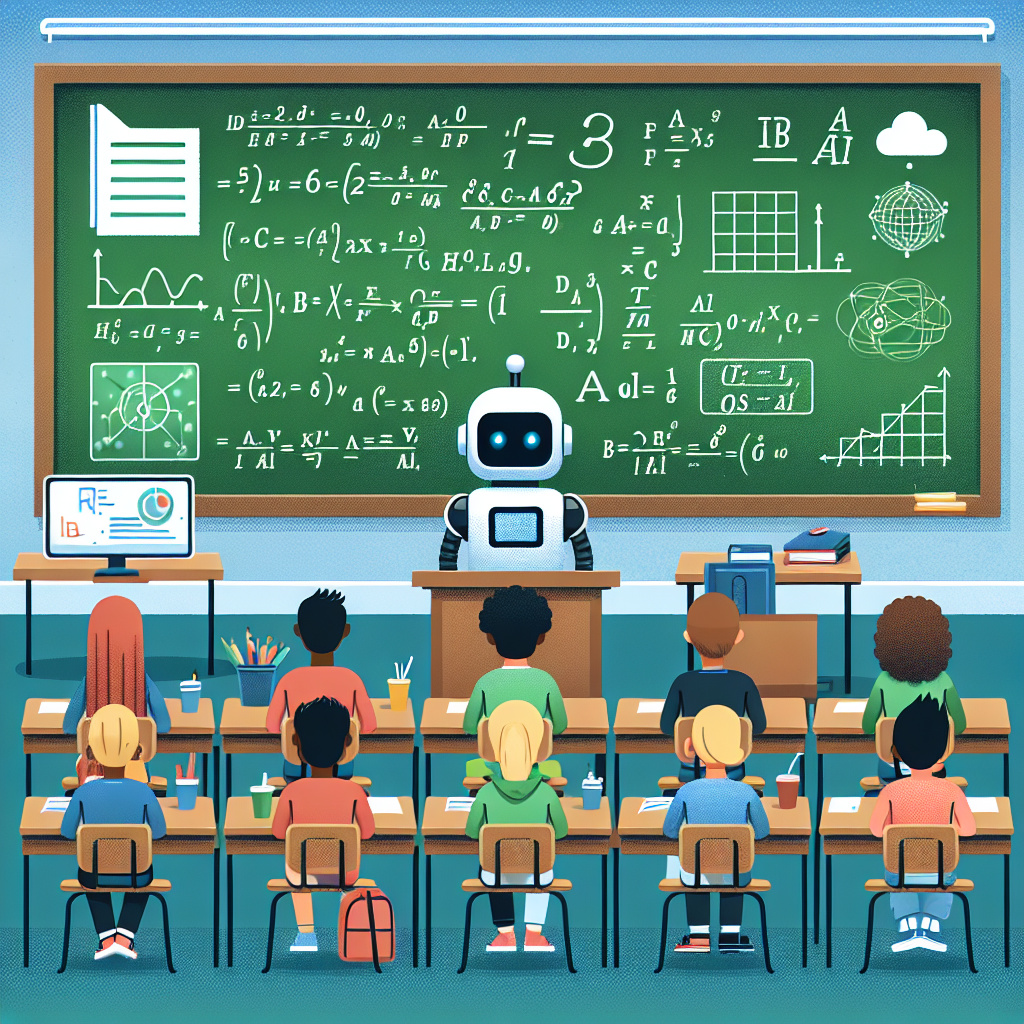Artificial Intelligence (AI) has been rapidly transforming various industries, and education is no exception. In recent years, AI technology has been increasingly integrated into classrooms to help improve learning outcomes in government schools. From personalized learning experiences to automated grading systems, AI has the potential to revolutionize the way students learn and teachers teach.
One of the key advantages of AI in education is its ability to provide personalized learning experiences for students. AI algorithms can analyze students’ learning styles, strengths, and weaknesses to create customized learning paths that cater to their individual needs. This can help students learn at their own pace and in a way that suits their unique learning preferences. By tailoring educational content to each student, AI can help ensure that no student is left behind and that all students have the opportunity to reach their full potential.
AI can also help teachers by automating routine tasks such as grading and lesson planning. By freeing up teachers’ time, AI can allow them to focus on more meaningful interactions with students, such as providing personalized feedback and support. This can help improve the overall quality of teaching and learning in government schools.
Furthermore, AI can help identify and address gaps in students’ knowledge and skills. By analyzing data on students’ performance, AI algorithms can pinpoint areas where students are struggling and provide targeted interventions to help them improve. This can help ensure that students are receiving the support they need to succeed academically.
In addition, AI can help make education more accessible to all students, regardless of their background or abilities. For example, AI-powered tools can provide translation services for students who speak English as a second language, or assist students with disabilities in accessing educational content. By removing barriers to learning, AI can help ensure that all students have the opportunity to succeed in school.
Despite the many benefits of AI in education, there are also some challenges and concerns to consider. One potential concern is the ethical implications of using AI in the classroom. For example, there may be concerns about data privacy and security, as well as the potential for bias in AI algorithms. It is important for educators and policymakers to carefully consider these issues and ensure that AI is being used in a responsible and ethical manner.
Another challenge is the need for adequate training and support for teachers in using AI technology. Many teachers may be unfamiliar with AI and may require training to effectively integrate it into their teaching practices. Providing ongoing support and professional development for teachers will be crucial in ensuring the successful implementation of AI in government schools.
Overall, AI has the potential to revolutionize education in government schools by improving learning outcomes for students and supporting teachers in their work. By providing personalized learning experiences, automating routine tasks, and identifying and addressing gaps in students’ knowledge, AI can help create a more equitable and inclusive education system.
FAQs:
Q: How is AI being used in government schools to improve learning outcomes?
A: AI is being used in government schools to provide personalized learning experiences for students, automate routine tasks for teachers, and identify and address gaps in students’ knowledge and skills.
Q: What are some of the benefits of using AI in education?
A: Some of the benefits of using AI in education include personalized learning experiences for students, improved teaching practices for teachers, and increased accessibility to education for all students.
Q: What are some of the challenges of using AI in education?
A: Some of the challenges of using AI in education include ethical concerns about data privacy and bias, as well as the need for adequate training and support for teachers in using AI technology.
Q: How can educators and policymakers ensure the responsible use of AI in government schools?
A: Educators and policymakers can ensure the responsible use of AI in government schools by carefully considering ethical implications, providing training and support for teachers, and monitoring the impact of AI on students’ learning outcomes.

